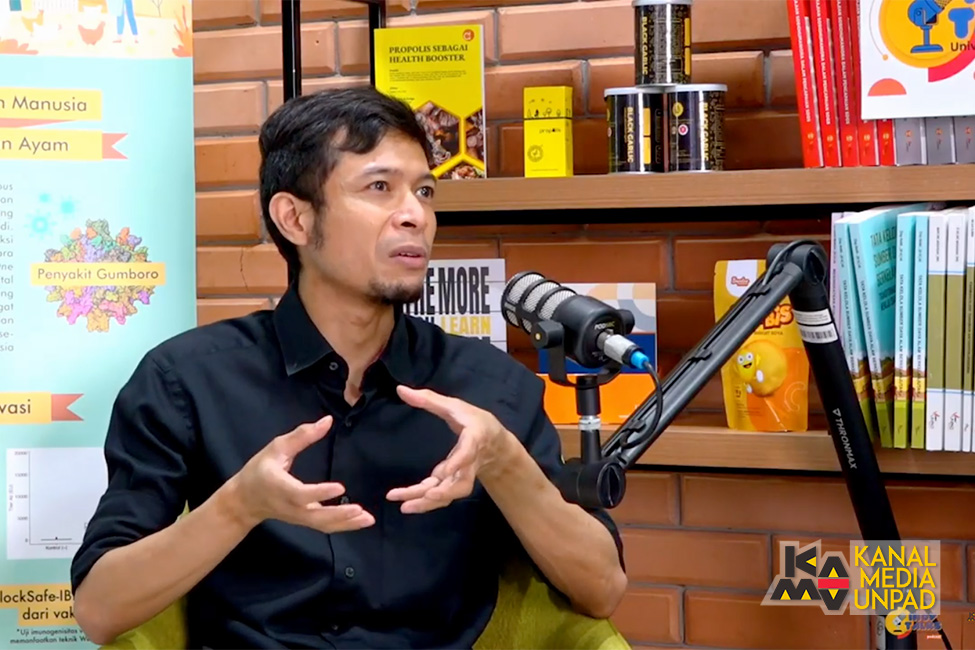[Unpad Media Channel] An Unpad professor from the Faculty of Mathematics and Natural Sciences, Ari Hardianto, Ph.D., said that disease transmission through animals can become a factor in the many diseases that a human being might contract. This motivated Ari and his team to develop a vaccine against Gumboro disease on chickens, utilizing a One Health Vaccinology approach.
“This means, if we want to improve the health of human beings in a holistic way, we also have to pay attention toward animal and environmental health, which will realize a better state of human healthiness in a holistic way,” said Ari in an InovTalks interview uploaded to the Unpad YouTube channel on Friday (5/3/2024).
He explained further that Gumboro disease can weaken the immune system of chicken and cause them to become vulnerable to deaths caused by other diseases. Generally, Gumboro disease targets newly hatched chicks, causing substantial losses for farmers.
The vaccine research, done in collaboration with PT Tekad Mandiri Citra, has gone on since 2019. The candidate for Gumboro vaccine currently in development uses recombinant protein as its base.
The technique of making a vaccine with a recombinant protein base was chosen for its higher rate of effectiveness compared to making a vaccine which weakens or kills the virus. This could also be adapted in accordance with the characteristics of the viruses present in Indonesia.
“If we were to kill it, we would also add certain chemicals which change the characteristics of the virus. Meanwhile, the vaccine will only trigger a specific immunity response. When the virus’ characteristics change, the vaccine will only recognize that specific variation, so when it encounters the original virus, it will lose its effectiveness and efficacy,” said Ari.
Furthermore, Ari explained that, with help from the 2023 Matching Fund program, the Gumboro disease vaccine candidate is going through testing done by BBPMSOH, the Indonesian organization of veterinary drug quality testing and certification.
Ari also expressed his hopes that the testing would soon produce good results, leading to a very beneficial vaccine product.
“We certainly have strong aspirations. We create, we have a strong will to realize those aspirations as well as many examples proving it can be done in Indonesia,” he concluded. (arm/ICP)*



